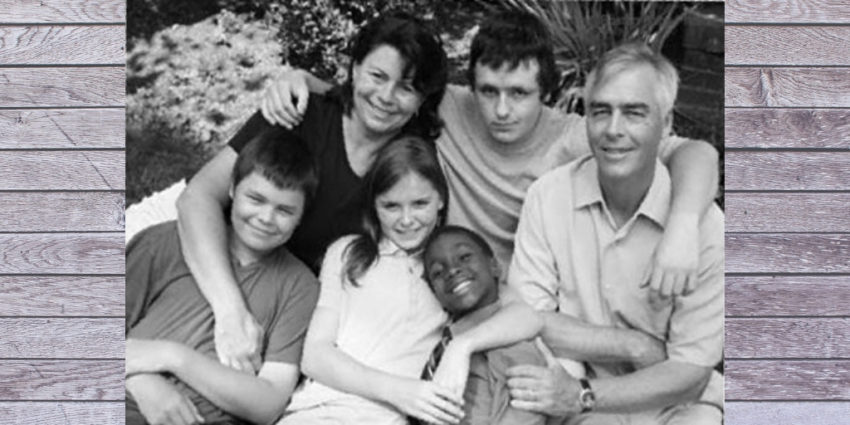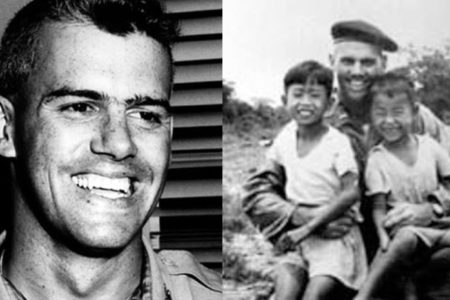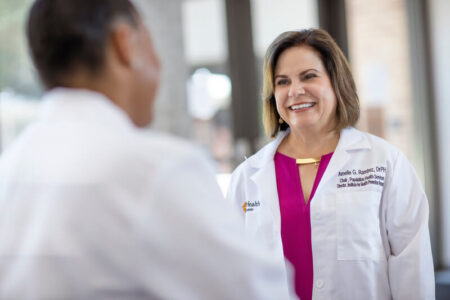
Share On Social!
As a white woman living in Boston who grew up all around the world, privileged and well-educated, Alison Corcoran was a stranger to injustice and health inequity.
“I’ve never been denied anything,” Corcoran told Salud America!.
That all changed 11 years ago when she became a foster parent to her African American son.
Experiencing Health Inequity and Bias First-Hand
When Corcoran’s son joined the family, he was only in the first grade.
During the family transition meetings, his social worker had told her: “Make sure you take him to the dentist soon – I don’t think he has ever gone.”
So Corcoran took him to the family dentist for a cleaning and exam.
During the appointment, it was no surprise that her son had multiple cavities.
Then, it came time to visit the front desk to make a follow-up appointment and pay for the services. The office manager spoke in a loud voice.
“Your son isn’t covered on your insurance,” the manager said.
Corcoran said she explained to the office manager that her son was enrolled in Mass Health, which is the Massachusetts version of Medicaid, as they were officially still foster parents. He wasn’t yet eligible for her employer-based coverage.
The office manager replied in a “louder and nasty voice,” Corcoran said.
“We don’t take Medicaid patients,” the office manager told her. “You’ll have to pay cash and then find another dentist.”
Corcoran, who had worked in the marketing industry since 2003, was astounded. At first she thought she misheard the office manager’s statement. When she asked her to repeat it, she remained in shock.
She said will never forget how the look on her son’s face when he knew he wasn’t wanted in that dentist’s office.
“Who among us would not want to make a difference in that moment?” Corcoran said. “Who among us would not want to make that investment – in him, in the quality of life he would have, in his future?”
How Bias and Inequity Disrupt Healthcare
Millions of Americans, especially Latinos and other communities of color, face bias and injustice that thwart proper healthcare.
Many studies have shown that physicians—especially white physicians—have implicit, subconscious preferences for white patients over those of color.
Implicit bias can lead to false assumptions and adverse health outcomes.
For example:
• Latino men are less likely to get treatment for high-risk prostate cancer than White men.
• Pregnant women of color face discrimination from healthcare providers.
• White male doctors are less likely to prescribe pain medications to black patients than white patients.
• Minorities who visit an emergency room in the U.S. are less likely to get prescriptions for certain medications than Whites.
Up until her first-hand experience, Corcoran was blind to these inequities.
“Just because we don’t see the injustices and inequities, doesn’t meant they are not there,” Corcoran told Salud America!.
Corcoran wanted to do something.
Sharing Her Personal Story to Push for Health Equity
Corcoran decided to write a LinkedIn post about her and her son’s dental injustice.
“I share my first-hand experience on health inequities, so that it can help other people.” Corcoran said.
The post has generated dozens of interactions and comments, helping raise awareness of bias and health inequity.
But Corcoran knows much work remains.
“Not enough has changed in the 11 years since our last visit to that dental office,” Corcoran wrote in her LinkedIn post. “Per the American Dental Association, only 39% of dentists accept Medicaid patients. Many Americans face a series of locked doors when they try to access oral health care: not enough dentists, language barriers, inability to afford the care, difficulty getting time off work, and the list goes on.
“Every American deserves to be free of dental disease – but millions cannot access the care they need.”
Taking a New Career Direction to Push for Health Equity
Corcoran’s experience drove her to advocate for better, equitable oral health care.
“Good health starts in your mouth, but too many people are left behind by the broken oral health care system, making Americans less healthy overall,” said Corcoran.
Two years ago, she took a leadership role as executive vice president and chief marketing officer of DentaQuest. The Boston-based company aims to improve the oral health of all.
She said she and the company are “invested in philanthropy as well as systems change.”
“DentaQuest is disrupting oral health care,” Corcoran said.
DentaQuest’s work in oral health care equity is happening through many initiatives.
They feature Health Equity Heroes who are breaking down barriers and improving health for at-risk individuals in seven states.
In March 2019, they announced $6.1 million in grants to 75 organizations to support efforts to address policies and perceptions that perpetuate poor oral health and inequities.
“We’re leading a revolution to redefine prevention and care, and our grants program is a critical piece of that work,” Corcoran said in press release. “Through our work with grantees, we can help address the real issues people all across the country face every day and change the way they interact with and experience the oral health system.”
Corcoran remains dedicated to her personal and career mission for health equity.
“Health starts in the mouth, which is why oral health is essential,” Corcoran wrote on LinkedIn. “And why oral health must be enjoyed by all. Let’s start here. Let’s stand together. Let’s make that a reality.”
By The Numbers
3
Big Excuses
people use to justify discriminatory behavior
This success story was produced by Salud America! with support from the Robert Wood Johnson Foundation.
The stories are intended for educational and informative purposes. References to specific policymakers, individuals, schools, policies, or companies have been included solely to advance these purposes and do not constitute an endorsement, sponsorship, or recommendation. Stories are based on and told by real community members and are the opinions and views of the individuals whose stories are told. Organization and activities described were not supported by Salud America! or the Robert Wood Johnson Foundation and do not necessarily represent the views of Salud America! or the Robert Wood Johnson Foundation.



